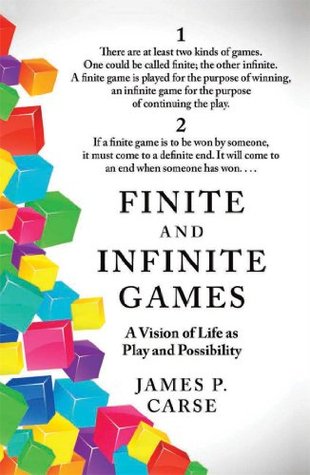More on this book
Community
Kindle Notes & Highlights
This does not mean that infinite players are politically disengaged; it means rather that they are political without having a politics, a paradoxical position easily misinterpreted. To have a politics is to have a set of rules by which one attempts to reach a desired end; to be political—in the sense meant here—is to recast rules in the attempt to eliminate all societal ends, that is, to maintain the essential fluidity of human association.
What confounds a society is not serious opposition, but the lack of seriousness altogether. Generals can more easily suffer attempts to oppose their warfare with poiesis than attempts to show warfare as poiesis.
Art is not art, therefore, except as it leads to an engendering creativity in its beholders. Whoever takes possession of the objects of art has not taken possession of the art.
Since art is never possession, and always possibility, nothing possessed can have the status of art.
This is why every new participant in a culture both enters into an existing context and simultaneously changes that context. Each new speaker of its language both learns the language and alters it. Each new adoption of a tradition makes it a new tradition—just as the family into which a child is born existed prior to that birth,
War presents itself as necessary for self-protection, when in fact it is necessary for self-identification.
For an infinite player there is no such thing as an hour of time. There can be an hour of love, or a day of grieving, or a season of learning, or a period of labor.
Infinite players cannot say how much they have completed in their work or love or quarreling, but only that much remains incomplete in it. They are not concerned to determine when it is over, but only what comes of it.
The paradox in our relation to nature is that the more deeply a culture respects the indifference of nature, the more creatively it will call upon its own spontaneity in response. The more clearly we remind ourselves that we can have no unnatural influence on nature, the more our culture will embody a freedom to embrace surprise and unpredictability.
Animals cannot be harvested. They mature, but they do not “ripen.” They are killed not when they have completed the cycle of their vitality but when they are at the peak of their vitality. Finite gardeners, converting agriculture into commerce, “raise” or “produce” animals—or meat products—as though by machine. Animal husbandry is a science, a method of controlling growth. It assumes that animals belong to us. What is source in them is to be resource for us. Cattle are confined to pens to prevent such movement as would “toughen” their flesh. Geese, their feet nailed to the floor, are force fed
...more
Infinite players understand that the vigor of a culture has to do with the variety of its sources, the differences within itself. The unique and the surprising are not suppressed in some persons for the strength of others. The genius in you stimulates the genius in me.
Waste is unveiling. As we find ourselves standing in garbage that we know is our own, we find also that it is garbage we have chosen to make, and having chosen to make it could choose not to make it. Because waste is unveiling, we remove it. We place it where it is out of sight. We either find uninhabited areas where waste can be disposed of, or fill them with our refuse until they become uninhabitable. Since a flourishing society will vigorously exploit its natural resources, it will produce correspondingly great quantities of trash, and quickly its uninhabited lands will overflow with waste,
...more
Infinite players are not serious actors in any story, but the joyful poets of a story that continues to originate what they cannot finish. 101 There is but one infinite game.


